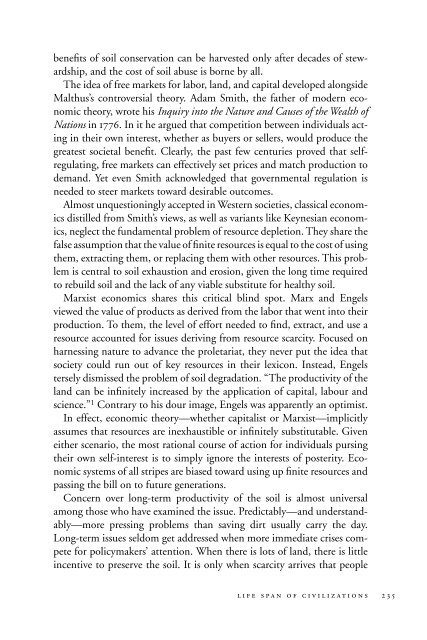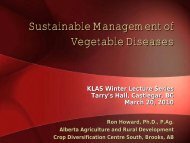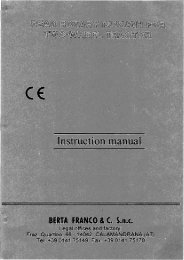Dirt: The Erosion of Civilizations - Kootenay Local Agricultural Society
Dirt: The Erosion of Civilizations - Kootenay Local Agricultural Society
Dirt: The Erosion of Civilizations - Kootenay Local Agricultural Society
You also want an ePaper? Increase the reach of your titles
YUMPU automatically turns print PDFs into web optimized ePapers that Google loves.
enefits <strong>of</strong> soil conservation can be harvested only after decades <strong>of</strong> stewardship,<br />
and the cost <strong>of</strong> soil abuse is borne by all.<br />
<strong>The</strong> idea <strong>of</strong> free markets for labor, land, and capital developed alongside<br />
Malthus’s controversial theory. Adam Smith, the father <strong>of</strong> modern economic<br />
theory, wrote his Inquiry into the Nature and Causes <strong>of</strong> the Wealth <strong>of</strong><br />
Nations in 1776. In it he argued that competition between individuals acting<br />
in their own interest, whether as buyers or sellers, would produce the<br />
greatest societal benefit. Clearly, the past few centuries proved that selfregulating,<br />
free markets can effectively set prices and match production to<br />
demand. Yet even Smith acknowledged that governmental regulation is<br />
needed to steer markets toward desirable outcomes.<br />
Almost unquestioningly accepted in Western societies, classical economics<br />
distilled from Smith’s views, as well as variants like Keynesian economics,<br />
neglect the fundamental problem <strong>of</strong> resource depletion. <strong>The</strong>y share the<br />
false assumption that the value <strong>of</strong> finite resources is equal to the cost <strong>of</strong> using<br />
them, extracting them, or replacing them with other resources. This problem<br />
is central to soil exhaustion and erosion, given the long time required<br />
to rebuild soil and the lack <strong>of</strong> any viable substitute for healthy soil.<br />
Marxist economics shares this critical blind spot. Marx and Engels<br />
viewed the value <strong>of</strong> products as derived from the labor that went into their<br />
production. To them, the level <strong>of</strong> effort needed to find, extract, and use a<br />
resource accounted for issues deriving from resource scarcity. Focused on<br />
harnessing nature to advance the proletariat, they never put the idea that<br />
society could run out <strong>of</strong> key resources in their lexicon. Instead, Engels<br />
tersely dismissed the problem <strong>of</strong> soil degradation. “<strong>The</strong> productivity <strong>of</strong> the<br />
land can be infinitely increased by the application <strong>of</strong> capital, labour and<br />
science.” 1 Contrary to his dour image, Engels was apparently an optimist.<br />
In effect, economic theory—whether capitalist or Marxist—implicitly<br />
assumes that resources are inexhaustible or infinitely substitutable. Given<br />
either scenario, the most rational course <strong>of</strong> action for individuals pursing<br />
their own self-interest is to simply ignore the interests <strong>of</strong> posterity. Economic<br />
systems <strong>of</strong> all stripes are biased toward using up finite resources and<br />
passing the bill on to future generations.<br />
Concern over long-term productivity <strong>of</strong> the soil is almost universal<br />
among those who have examined the issue. Predictably—and understandably—more<br />
pressing problems than saving dirt usually carry the day.<br />
Long-term issues seldom get addressed when more immediate crises compete<br />
for policymakers’ attention. When there is lots <strong>of</strong> land, there is little<br />
incentive to preserve the soil. It is only when scarcity arrives that people<br />
life span <strong>of</strong> civilizations 235






